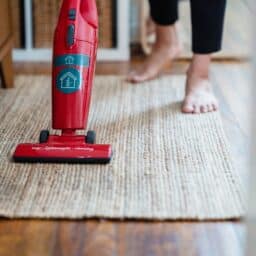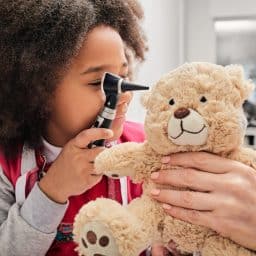What Are Comorbidities of Allergic Rhinitis?

Allergic rhinitis, often referred to as hay fever, is an allergic reaction that causes symptoms such as nasal congestion, runny nose, sneezing and a sore throat. Having chronic allergic rhinitis may also increase your risk of several other health conditions. Asthma Allergies and asthma are often intertwined. This is partly because both conditions can be…
Is There a Link Between Allergies and Nosebleeds?
Allergic reactions are caused by an immune response to contact with allergens. Allergens can include but are not limited to: When you come into contact with an allergen, the immune system sends out antibodies to attack what it believes to be a harmful foreign substance, even though it is benign. Nosebleeds can be common in…
Can Allergies Cause Snoring?

Allergy symptoms can interfere with your life in a variety of ways, including increasing your snoring and disrupting your sleep. Why Can Allergies Cause Snoring? Allergies can cause symptoms like nasal congestion, and a runny nose can lead to louder and more frequent snoring. One study examined the prevalence of allergic rhinitis and the development…
How To Manage Tree Pollen Allergies

Spring and summer bring warm weather, pool parties and fun days at Laurel Park, but they can also bring tree pollen. If you have an allergy to tree pollen, you may start experiencing symptoms including but not limited to: Because tree pollen can float through the air for miles, it can be hard to avoid…
The Importance of Indoor Air Quality When You Have Allergies

When we think about air quality, we often think of the outdoors. Whether you’re talking about wildfires that catch national attention or just experiencing high pollen levels when walking around somewhere like Laurel Park, air quality conversations are often limited to what you’re breathing outside. However, indoor quality is equally important, especially if you suffer…
Summer Checklist for Allergies

The Centers for Disease Control and Prevention reports, “About one-quarter (25.7%) of adults had a seasonal allergy.” If you have seasonal allergies during the summer, you’re probably wondering what you can do to prevent symptoms. We provide a summer checklist for allergies below. Deep Clean Your Home It’s a common misconception that you will only…
Tips for Exercising Outdoors with Seasonal Allergies

The Asthma and Allergy Foundation of America reports, “In 2018, approximately 24 million people in the U.S. were diagnosed with seasonal allergic rhinitis (hay fever). This equals around 8% (19.2 million) of adults and 7% (5.2 million) of children.” For those who are part of this population, it can be challenging to spend time outdoors…
What Are the Benefits of Balloon Sinuplasty?
If you experience chronic sinus infections, there may be the perfect solution for you: balloon sinuplasty. This procedure entails inflating the sinus cavities with a balloon catheter and flushing them out with saline solution. This results in relief from your sinus symptoms. We review other benefits of balloon sinuplasty below. There’s No Need for Incisions…
How to Reduce Your Child’s Risk of an Ear Infection

According to a 2017 article, “Acute otitis media [middle ear infection] affects over 80% of children before their third birthday, and 30 to 45% of these children have suffered two or more episodes.” The reason why middle ear infections are so common among young children is because the passageways between their middle ears and the…
How Should I Prepare My Child for Ear Tube Surgery?

If your child has chronic, recurrent ear infections, an ear, nose and throat (ENT) physician may recommend ear tubes, also known as tympanostomy tubes (TT). According to one 2022 article published in the National Library of Medicine, “Almost 7% of all children will have a least one set of TT by 3 years of age,…
